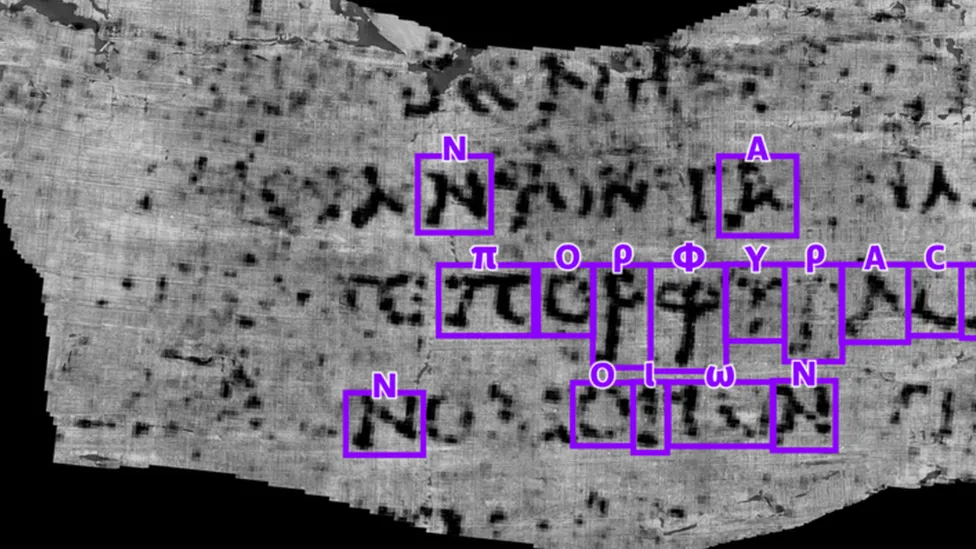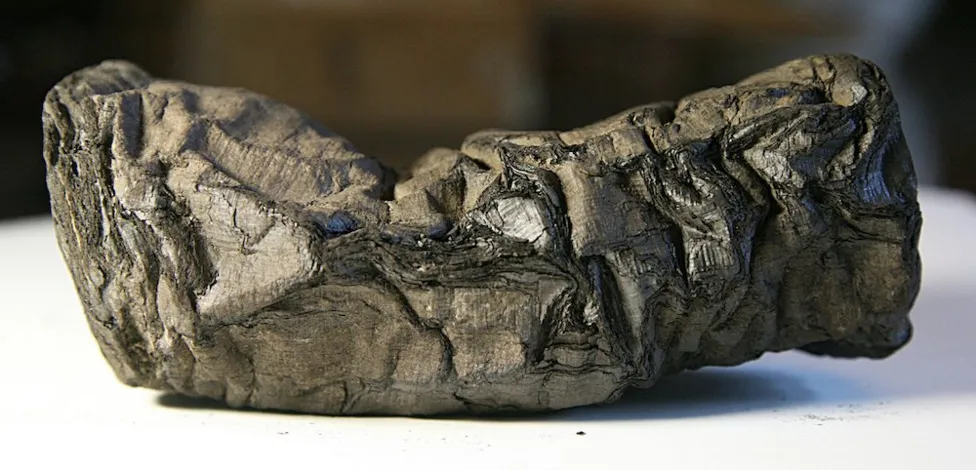AI Delving into the Past
Three students have achieved a groundbreaking feat by winning a $700,000 prize for utilizing artificial intelligence (AI) to decipher a 2,000-year-old scroll that was charred during the eruption of Mount Vesuvius in 79 AD. The scroll, previously unreadable due to extensive damage in the Roman town of Herculaneum, is believed to have belonged to Julius Caesar’s father-in-law and contains discussions on music and food.
The breakthrough is being hailed as a “revolution” in Greek philosophy by experts. The writing style is reminiscent of the Greek philosopher Philodemus, a follower of Epicurus, and a possible philosopher-in-residence at Herculaneum. In the 18th century, a trove of papyrus scrolls was discovered in the town’s villa library, representing the sole library of texts from ancient Roman times. Despite their discovery, scholars struggled to decipher the contents due to severe damage from volcanic debris during the eruption.

Dr. Federica, a papyrology researcher at the University of Naples, notes that the scrolls’ preservation is owed to the high temperatures of the eruption, which carbonized and saved the scripts from typical decomposition. Last year, Dr. Brent Seales and his team at the University of Kentucky used high-resolution CT scans to unroll the texts. However, the black carbon ink used on the scripts was indistinguishable from the papyrus, posing a new challenge.
Dr. Seales initiated the Vesuvius Challenge, a $1 million prize for a solution. Three students, Youssef Nader, a PhD student in Berlin, Luke Farritor, a SpaceX intern, and Julian Schillinger, a Swiss robotics student, proposed an AI model based on pattern recognition to decipher the lettering. Dr. Federica describes this as the “start of a revolution in Greek philosophy.”
The AI model has successfully decoded 2,000 Greek characters from one of the four scrolls scanned, representing just 5% of the text. The translated passages reveal discussions on the sources of pleasure in life, with references to music and food. Philodemus raises questions about whether scarcity enhances pleasure, drawing parallels with food: “as too in the case of food, we do not right away believe things that are scarce to be absolutely more pleasant than those which are abundant.”
The team behind the Vesuvius Challenge aims to utilize this technology to decipher 90% of all four scrolls scanned this year and eventually all 800 scrolls.
































Comment Template